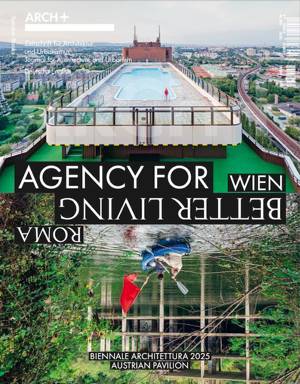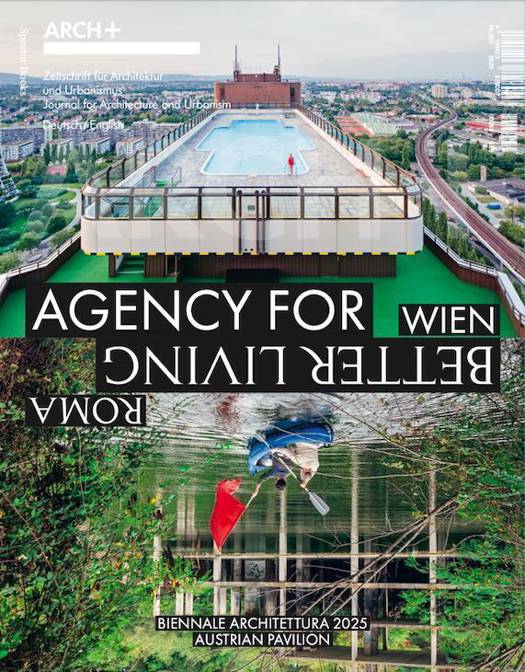
- Afhalen na 1 uur in een winkel met voorraad
- Gratis thuislevering in België vanaf € 30
- Ruim aanbod met 7 miljoen producten
- Afhalen na 1 uur in een winkel met voorraad
- Gratis thuislevering in België vanaf € 30
- Ruim aanbod met 7 miljoen producten
ARCH+ Wien / Roma. Agency for Better Living
Giulia Fiocca, Federica Giardini, Lisz Hirn, Michael Klein
Paperback | Engels, Duits
€ 32,00
+ 64 punten
Omschrijving
The Austrian Pavilion at the 2025 Venice Architecture Biennale focuses on housing. CuratorsMichael Obrist, Sabine Pollak, and Lorenzo Romito contrast the top-down model of social housingconstruction in Vienna with the bottom-up model of self-organization in Rome's civil society. Whatcan a system organized at state or municipal level learn from an approach based on informalactivism, and vice versa? Could a synthesis of the two models perhaps be a starting point forovercoming the acute lack of affordable housing in our cities? And what does good housing anda better life involve today anyway? In the accompanying issue of ARCH+, the developments inVienna and Rome are discussed in essays, discussion formats, and numerous infographics.Appearing in English and German, the issue is being developed in collaboration with MichaelObrist, Sabine Pollak, and Lorenzo Romito, the curators of the Austrian Pavilion at the 2025 VeniceArchitecture Biennale. The issue is presented, together with Wien: Das Ende des Wohnbaus (alsTypologie), ARCH+ 244 (2021), as an accompaniment to the exhibition.
Specificaties
Betrokkenen
- Auteur(s):
- Uitgeverij:
Inhoud
- Aantal bladzijden:
- 216
- Taal:
- Engels, Duits
Eigenschappen
- Productcode (EAN):
- 9783959059152
- Verschijningsdatum:
- 7/05/2025
- Uitvoering:
- Paperback
- Afmetingen:
- 235 mm x 10 mm
- Gewicht:
- 722 g

Alleen bij Standaard Boekhandel
+ 64 punten op je klantenkaart van Standaard Boekhandel
Beoordelingen
We publiceren alleen reviews die voldoen aan de voorwaarden voor reviews. Bekijk onze voorwaarden voor reviews.










